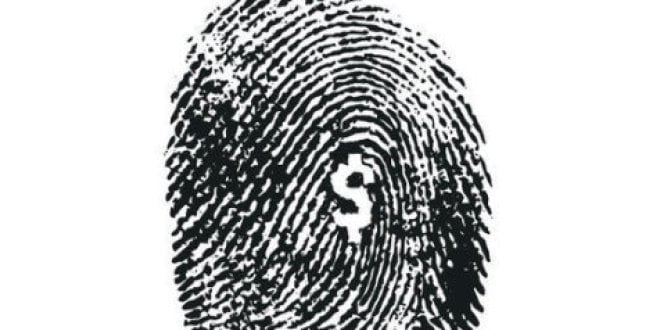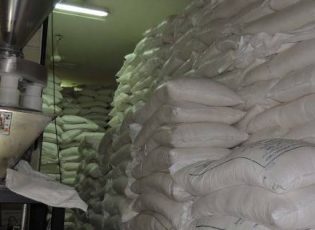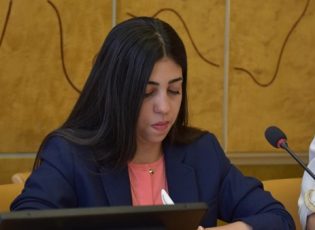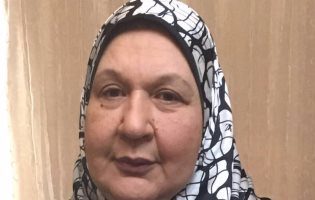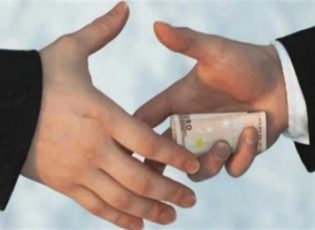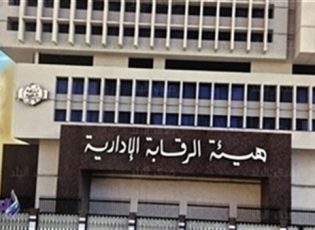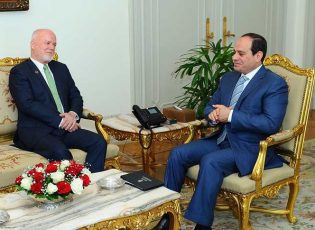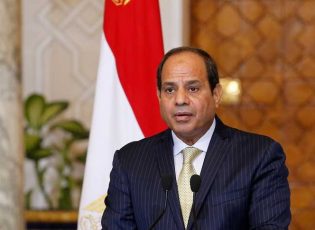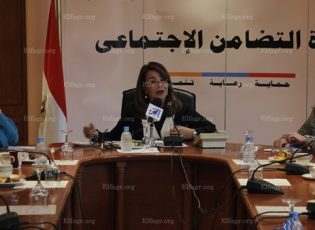Most people might mention that the Arab revolutions began with a young man who burned himself, but what they do not remember is that this young man did so in protest of corruption. Mohamed Bouazizi, a Tunisian fruit seller, believed that the police had been exposed to him more than other vendors.
Bouazizi's death sparked the biggest political movement of the 21st century. US Federal Intelligence Officer George McKitcheren, a senior global bribery and corruption investigator, said that the Arab Spring was "mostly in response to corruption. Corruption leads to state failure, which leads to terrorism."
It is precisely for this reason that the new corruption scandal recently revealed by the torrent of secret emails from a shadowy Monaco company called Unaoil is a resounding one.
Unaoil scandal
On Wednesday 30 March 2016 it was published by:Huffington Post"And its Australian partner," Fairfax Media, "the results of months-long research conducted by journalists Richard Baker and Nick McKenzie, about this mysterious Unaoil company, which is an office that helps global multinational companies enter into contracts in countries and regions of the world ravaged by corruption.
Hundreds of major international companies such as Halliburton and its former subsidiary KBR and Rolls-Royce and Samsung are all names that have dealt with Unaoil in order to conclude profitable contracts in countries such as Iraq, Kazakhstan, Libya, Syria, Tunisia and other countries in Africa, the Middle East and the former Soviet Union, as revealed by tens of thousands of e-mails and internal documents. .
It is usual for large global companies to deal with smaller companies and offices with local experience, in order to conclude contracts in a country. In many of these cases, however, it became clear that Unaoil was not securing these contracts either with its expertise or knowledge, but by paying millions of dollars in bribes to corrupt officials.
Negation..
Most of the companies that dealt with Unaoil denied their involvement in illegal corrupt activities. A spokeswoman for KBR said, “KBR is committed to conducting its business dealings with integrity and transparency in compliance with all applicable laws.”
As for Samsung, she said, "We never tolerate illegal or ethical practices that may emanate from some of our employees or those working on behalf of our company. Samsung has always worked within the regulations and legal frameworks in all its commercial dealings."
Whereas in 2013 Rolls-Royce sent a letter to a branch of Unaoil severing its relationship with it based on corruption charges, it said that it “cooperates with the relevant authorities and does not make any comment about the ongoing investigations. We have made it clear that Rolls-Royce does not tolerate unregulated business practices no matter what. ”
Greater than corruption
Thus, in keeping with the corruption of mainly dishonest regimes and the flow of funds and resources out of poor countries, Unaoil and its partners were risking more than just paying fines and penalties; Rather, the company contributed to igniting political discord and instability, which provoked citizens' hearts against their governments and fueled the fire of anger that fueled the Arab revolutions, which made the whole scene easy prey for terrorist groups such as Al Qaeda and ISIS.
According to estimates by Daniel Kaufman, a management expert at the World Bank Institute, companies and individuals annually pay at least $ 1 trillion in bribes to public sector officials.
Unaoil emails do not show us how the rampant corruption of third world countries shakes the foundations of the oppressed and overwhelmed Western companies, but rather the opposite: they show us how Unaoil, in its representation of Western companies, is slowly working to corrupt foreign officials in the countries of the world. The third is to draw them to the swamp of corruption, starting with small gifts and cash sums for heavy shopping, and then entrapping them into the trap of major bribes.
Corruption as a justification for terrorism
"There is always someone who pays, and global corporations in general are the source of corruption," says billionaire hedge fund giant George Soros. This is part of the narrative that the terrorists have always told the local population to justify and justify their jihadist war in their claim. And he is right in many cases that cannot be mentioned here.
Monaco-based but incorporated in the British Virgin Islands, Unaoil says it provides "industrial solutions to the energy sector in the Middle East, Central Asia and Africa." The company was founded in 1991 by millionaire Atta Ahsan, who was born in Iran and who left after the 1979 revolution.
"It's very simple, what we are doing is integrating western technology with local capabilities," says Ahsani of his company’s work, speaking to The Huffington Post and its Australian agent, Fairfax Media. Two of Atta Ahsani's sons, Cyrus and Saman, are in charge of the company's duties and mainly managing its day-to-day operations.
Schemes revealed
Here's how company charts most often worked. Within the timeframe of documents examined by our team of journalists, most of which fall between the end of 2003 and mid-2011, Unaoil has always requested a percentage of its partners' revenues from any contract it succeeds in concluding in their name. When she secures her share of the profits of the company she entrusted with, she sometimes uses part of that share to bribe government officials, while the rest is kept for herself.
In one of his e-mails sent to colleagues in 2005, Basil Al-Jarrah - one of the chief executives at Unaoil - described a meeting in September with Laurent Bawadivan, who was then vice president of sales and marketing at an American technology company called FMC Technologies.
In his letter, Al-Jarrah bragged that he had convinced FMC to appoint his company, Unaoil, to obtain contracts to install 4-6 new loading booms in an important port in Kuwait. Here are excerpts from the message:
“Today I secured the company's commitment to deliver a written and documented 10% share by the end of the business day. She asked FMC to write to us as well 3 letters stating:
Share 1% to another company for the introduction.
The share of 7% is for Unaoil which we will provide to the biggest in charge of Kuwait.
The share of 2% for Unaoil to be divided internally.
Mr. Laurent did not mind any of this, provided personal names were not mentioned. His CEO will be informed of this agreement when he returns to his office and he will send an email with the text of the commitment, followed by a consultancy contract to be signed by both parties.
There is another mediator who will deal with the senior official in Kuwait and decide which share of that 71 TP1T will go to that man’s pocket.
Confirmation of commitment
Boadivan is currently the Chairman and General Manager of FMC as mentioned on his Linked In account. An FMC spokeswoman said in an email that “FMC Technologies has a culture of responsibility and respect for the law, and it competes aggressively with its technology, services, and executive excellence. Our employees are an example of our core values of integrity and integrity, and they are trained to report any concerns. We investigate all the issues raised in a detailed manner and take appropriate action. This is a commitment FMC Technologies took upon itself for a long time, applying it everywhere it does business. ”
Did Unaoil bribe government officials? The answer that Atta Wellsni answered us, "Absolutely no."
US FCPA Act
If it is true that it did - as appears in the emails of its employees - then companies that contracted and hired Unaoil could face criminal penalties or huge fines. In the United States, there is a federal law called FCPA, meaning the Foreign Corrupt Practices Act, that prohibits American companies from doing business with any entity they know or discover is bribing government officials; Even the simple offer to pay a bribe is forbidden in itself, and most rich countries such as Australia, Canada and Britain have similar laws. Also, the US Attorney General (Public Prosecution) has the right to apply US law (and it does apply it) to foreign companies, especially those that do business in America or offer shares on US trading exchanges. Historically, 8 of the 10 largest penalties imposed by this FCPA have been against companies based outside the United States, and all of these top 10 fines have been worth over $ 100 million.
Absolutely not all companies dealing with Unaoil were aware of that company’s practices. But this may not matter. The FCPA also stipulates clauses of fines and penalties against companies that fail to accurately investigate the practices of their agents and partners to identify any bribes in their activities. In the text of that statute, this is called "willful ignorance" or "willful blindness," as Andy Spaulding, a law professor at the University of Richmond who has a blog on the Internet, explained to us.
“Historically most of these companies have hired middlemen,” Spaulding says. The first company thinks it is protected by law because it does not know what the middleman company is doing; But if there are caveats and suspicions and the first company did not investigate and research them, this would constitute a liability for them and a source of legal accountability.
Suspicious "Monaco"
Suspicions hovered over Unaoil's activity and surrounded it from every side. Just knowing that it is based in a small tax haven "Monaco" should have caused suspicion of its partners, said Richard Bestrong, executive director of Frontline Anti-Bribery, an anti-bribery consulting firm.
He added, "Once you know that the company has an agent in Monaco, a sponsor will warn you."
Bestrong previously collaborated with the US FBI intelligence service and served 14 months in a federal prison over a FCPA violation case, and he is now providing advice to companies on avoiding falling into what happened.
He says that Unaoil’s business - which is the energy production industry - is “risky and capable of arousing suspicion and caution at the state level,” adding that the establishment of that company in the British Virgin Islands is in itself a “great suspicion”, he said.
"tip"
But some of Unaoil's partners didn't party much. A striking example of this is Kisley Kalinsky, the head of the Canadian oil fracturing company Completions Canuck; He sent an email to colleagues and to a Unaoil employee named Forohar Varzadania, inquiring about a deal in Libya.
Kalinsky wrote, “The question that preoccupies us is: What kind of tips are required to give these men in order to start the deal. Tipping is common in Libya, but we are not sure how to deal.
Should it be done in person after business hours? Or do we add the value of the tip to the share of their card, or make it a value paid every month? we do not know. What are your suggestions in this regard? (Kalinsky now works for TMK Completions, which replaced and merged Completions Canuck several years ago. The company declined to comment on the matter or to make Kalinsky available for an inquiry.)
Then, after several e-mails, Saman Hassan wrote an e-mail to Farzadania and others, saying, “I don’t know what Kevin means by“ tips ”. I would like to remind everyone of our group's behavior and that we do not tolerate nor tolerate any indulgences. You should talk to him. ”
Why does America prevent bribery?
Bribery is prohibited for many reasons, but one reason is the one on which the United States has been fighting bribery for many decades: It is the fact that corruption destabilizes the political state and strengthens the enemies of democratic systems with an open market. When the United States enacted the FCPA in 1977, Spaulding, a law professor in Richmond, told us, “The fear was that American companies paying bribes outside the country might weaken the West’s position during the Cold War. “American lawmakers and legislators have realized that corruption weakens governments friendly to the West and makes them easy prey for insurgencies and political insurrection in them.
How did the jihadists invest in "corruption"?
As was the case with their communist predecessors, jihadists also recognized the power of narratives of corruption and combating it in order to gain popularity among the people and win their support and sympathy. "Corruption is a tool in the hand of terrorism, and a reason that leads to terrorism," says Roger Cook, a corruption expert with the City of London Police.
The jihadists see piety not as an end in itself, but rather a means to achieve good and rational government. In 2004, Osama bin Laden recorded a propaganda video that he sent to Al-Jazeera, warning the Middle East that the Bush administration had occupied Iraq "with a new tool helping them to steal Iraqi oil." Bin Laden was fond of denouncing “arrogance, arrogance, greed, and the accumulation of money” of the Gulf states.
In 2008, Kim Parker wrote in the Chicago Tribune about the phenomenon of corruption in Afghanistan, saying in a report from Kabul, “Corruption is diverting many towards the extremist Taliban, which is cleaner in comparison. Everyone may remember the cruelty of Taliban rule, but everyone remembers that they applied it tightly and none of them sprayed. ”
Ayman al-Zawahiri, who heads al-Qaeda now, denounces corruption on every occasion. In 2009, he said, “These corrupt and rotten regimes are the reason behind economic injustice, corruption, political oppression and social disintegration.”
ISIS and corruption
The jihadists in Afghanistan, Iraq, Syria and Libya have also focused most of their propaganda campaign on rampant corruption in Hamid Karzai, Nuri al-Maliki, Bashar al-Assad, and Muammar Gaddafi.
After Abu Bakr Al-Baghdadi installed himself as a successor to "ISIS" in 2014, his first decisions and orders were to pledge to return the properties that Nuri al-Maliki - the Iraqi Prime Minister at the time - had illegally seized.
A senior Iraqi official, who is not authorized to speak and issue recorded statements, told us, “Part of their narrative is that the state is corrupt and that democracy is like corruption.”
In order to prove that it is serious about fighting corruption, ISIS deliberately punished several fighters from its ranks with crucifixion after allegations that they accepted bribes.
Iraq is an example
When the pro-Western countries fall into the trap of corruption and are weakened and dysfunctional, it is in the interest of the rebels, whose secrets glorify this news, and for this reason they rejoice when American and Western companies allow to undermine the management system and tolerate corruption.
As the billionaire Soros said: There is always someone who pays bribes. For example, corruption in Afghanistan and Iraq did not worsen and worsen until the American occupation came, when America brought with it Western companies and capital. And between 2003 and 2015, Iraq fell on the global ladder of transparency and corruption index from 113th to 161st.
“We’ve had a hard lesson,” said Keith Henderson, who in the US State Department in 2008 evaluated Iraq's efforts to combat corruption and now teaches at the Law School of an American university. If you do not do anything about the issue of corruption in state institutions, one of the most likely outcomes is destabilizing civil stability and perhaps insubordination and rebellion.
The case of Afghanistan
Last year, Aaron O'Connell, a military historian at the US Naval Academy, wrote that in Afghanistan "the sheer volume and volume of international aid entering the country since 2002 has created significant incentives for bribery." Between 2005 and 2015, Afghanistan fell on the Global Corruption Index from 117 to 166, just above North Korea and Somalia.
Sarah Chase has witnessed the damage caused by the flow of Western money - and the corruption that came with it - to Afghanistan. She was a correspondent for the NPR in Kabul to cover the entry of American forces there to defeat the Taliban. But with the end of her mission, she did not leave the country. Rather, she decided to stay and help in the reconstruction, so she opened a cooperative company to produce soap and body oils. She was one of the few Americans who lived and worked in Afghanistan over the past 15 years among the Afghan people, not from behind barbed wire.
Only a few months later, Chase noticed that people she considered normal normal from the center began expressing their sympathy for the Taliban. After that, I realized what was going on, and that the corruption that has spread at all levels since the entry of the American occupation has begun to loosen the hearts and pit people and destabilize them with anger.
Then Chase began working for the US military in Afghanistan, waging a domestic campaign to persuade policymakers to focus on and combat corruption. In the end, the case reached the office of Secretary of State Hillary Clinton, who was only rejected and rejected the case in a memorandum issued in 2010 that is still classified under classified papers.
Chase says that people in the West believe that all the revolutionary rebellions in Muslim-majority countries are only a reaction to the role of Islam in society, but the reality is that it is caused by the rebels' exploitation to spread discontent among people about the way their countries are managed and governed. People who are tired and fed up with corruption tend to look for honest leaders who are far from corruption.
'State thieves'
Chase writes in her book "Thieves of State," in which she discusses the threat of corruption to global security, "He does not mention prisoners at the top of the list of reasons for joining the Taliban, neither racial bias, disdain for Islam, nor anxiety about the remaining US forces in their country; Rather, they mentioned at the top of their list their view of the Afghan government, as hopelessly ridden with corruption. She added that Afghans "see Washington as responsible for the Karzai government's actions."
The role of Western companies in driving and fueling foreign corruption has long been obscured, but Unaoil's emails are a clear proof of the complicity of some companies with foreign corruption and how much other companies are willing to turn a blind eye to this corruption.
Who is the "Manara"?
Take, for example, the case of Diaa Jafar al-Mousawi, nicknamed the lighthouse, or "the lighthouse" in these emails. When Unaoil started dealing with Diaa Jafar - who is currently the deputy oil minister of Iraq - he was only an official in the Southern Oil Company, which is the most important government energy production company.
Al-Jarrah wrote about Diaa Jaafar in 2008, "When prime ministers visit Basra, he accompanies them first and then meets with them in private sessions." At the time, Al Jarrah and his company, Unaoil, were focusing on seducing him with small sprays.
The emails and documents contain dozens of examples of payments to government officials by several Unaoil employees, but Al Jarrah was always the least secretive of the company’s employees in his correspondence and the most outspoken of his activities. He described his efforts to trap Dhia Jafar in an email, saying:
“We didn't really give Diaa Jafar much, but here is a list:
1. I took him twice on shopping tours that cost between 1000$ and 2000$ each time.
2. We paid one of his clients under him 30K $ to help us with the divisor order.
3. His son gave us an English language course for two weeks in Dubai and we arranged interviews for his son to hire him in Adnan Company, but the son found himself another alternative job.
4. We worked for the past 8 months to obtain a residence permit for him in the United Arab Emirates, but to no avail.
And that's it. ”
what is the opposite?
Al-Manara paid Unaoil the insider information it wanted and the favoring of certain customers of his oil company. In August 2009, al-Jarrah wrote an email to Atta Ahsani and his son Cyrus, in which he said: “Through my public conversation with Mr.“ Manara ”this evening it became clear that the Turkish international oil company, TPIC, was close to winning an order worth $ 325 million in exchange for drilling 45 wells. Oil, southern Iraq.
He told me that they had submitted their request in a direct public, and that he was not aware of any private intermediary for them by an Iraqi official who supported their request. There, she immediately asked “Al Manara” to stop all procedures until he heard a response from me. We have to move urgently and quickly to reach that company and offer them all our services and our work to convince them that Unaoil can facilitate all the transactions of the Ministry and the South Oil Company.
Corruption begins with a carpet!
Debra Labrevot was one of the most important US FBI agents in the global oil industry corruption investigations until her retirement last December. She told us that the file of Unaoil fraud in bribing officials and dragging them into corruption is known and exposed. “This is their way of working. They start with a carpet, then a car, then a Rolex watch, then the matter develops and they tell them that we can pay your children's educational payments. ”
“The money they sprinkle and lavish on those they target makes them tell them, 'Let us take your family on vacation,' '' Laprivot added. Let us provide you with tickets for the World Cup matches or the American Football League Super Bowl and other things from the temptations that attract a person, but he cannot afford them.
Hindsight
The Obama administration belatedly realized the idea that corruption is a threat to national security. Secretary of State John Kerry said at the World Economic Forum in Davos earlier this year, citing the examples of Iraq, Syria, Libya and Nigeria, “Corruption is a factor that leads to extremism because it destroys faith in the legitimacy of power and opens a gap that allows beneficiaries to enter And infiltration from it, and no one realizes this more and better than violent extremist groups that persist in using this argument of corruption as a means to recruit people.
The Iraqi ambassador to the United States, Luqman Al-Faily, says that his government has learned its lesson, after being notified of corruption charges related to Unaoil, Al-Faili said that the new Iraqi Prime Minister Haider al-Abadi is heading a new committee that will review the audit of all major important contracts in the ministries; He also added that his country had banned “media” in military contracts at least. According to him, the media ban in the defense sector alone has saved nearly $ 2 billion.
Unaoil is still active in Iraq. In 2015, Saman Ahsani wrote an internal memo to his employees entitled “Fabrications about Unaoil in Iraq,” in which he said, “We recently heard accusations that our company had bribed its clients in international and national oil companies, as well as government officials, in order to run its business. The timing of these accusations is not a mere coincidence, as it is known to you that we are close to achieving major new deals with international oil companies. We will soon bring you news of other successes outside Iraq as well. ”
Last July, Unaoil announced its victory, bragging about in a press release, "FZCO, a joint venture between Unaoil and the Salzer Pumps Company located in North Rumaila, Iraq, has won a 3-year pump maintenance contract submitted by Basra Gas Company." . And the aforementioned contract is worth millions.Egypt news
Short link: https://pfort.org/en/?p=945

